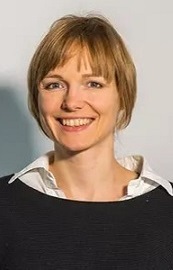

| Automation and Control Institute, TU Wien, Austria
Center for Vision, Automation & Control, AIT Austrian Institute of Technology, Austria Andreas Kugi is head of the Automation and Control Institute (ACIN) and full professor for complex dynamical systems at TU Wien, Austria. Since 2017 he is also the head of the Center for Vision, Automation & Control at the Austrian Institute of Technology (AIT). He received the Dipl.-Ing. degree in Electrical Engineering in 1992 from TU Graz, Austria, the Ph.D. (Dr.techn.) and the Habilitation degree in the field of automatic control and control theory from Johannes Kepler University (JKU), Linz, Austria, in 1995 and 2000, respectively. From 2002-2007, he was a full professor for system theory and automatic control at Saarland University, Germany. His main research interests include the modeling, control and optimization of complex dynamical systems, the mechatronic system design as well as robotics and advanced process control. He has been collaborating with more than 40 national and international companies. Andreas Kugi has published more than 350 scientific papers, is inventor or co-inventor of 43 patent families and has supervised more than 50 completed Ph.D. dissertations. Apart from many other activities, Andreas Kugi was the Editor-in-Chief of the IFAC journal Control Engineering Practice from 2010-2017, he is the Chair of the IFAC Technical Committee CC 4 on Mechatronics, Robotics and Components and he is the Vice President of the Austrian Electrotechnical Association (OVE). He is a full member of the Austrian Academy of Sciences and a member of the German National Academy of Science and Engineering (acatech). |
 |
Title: Can advanced control support the autonomous operation of robots and machines?(Date: January 18th 2023)Classical automation is typically organized in (hierarchical) control loops which perform the sequential steps to sense, analyze, calculate, and finally act on the system. Modern methods in AI, machine learning, sensor fusion, and real-time optimization raise this traditional sensing-action feedback loop to a higher level where whole situations are perceived, analyzed and understood, and decisions how to act on the system are made at a cognitive level. The degree of maturity and sophistication of the overall automation concept determines the extent to which the system achieves a certain level of autonomy. In this context, also the design of the underlying control and perception solutions must be tailored to the specific needs of an autonomous operation. In this talk, we will first demonstrate the challenges to be tackled by selected examples of the autonomous handling of objects. This will lead us to the specific demands on the underlying planning and control framework in terms of flexibility, robustness and performance. In particular, on the basis of different applications we will show how advanced optimization and control concepts, like nonlinear path-following and model-predictive control, can be exploited to reach these goals. |
| Department of Biomechanical Engineering, Delft University of Technology, Netherlands Heike Vallery received her Dipl.-Ing. degree in Mechanical Engineering (with honors) from RWTH Aachen University in 2004. Since then, she has been working on robot-assisted rehabilitation and prosthetic legs, in close collaboration with clinicians and partners from industry. She received her Dr.-Ing. from the Technische Universität München in 2009 and then continued her academic career at ETH Zürich and later at Khalifa University in Abu Dhabi. Today, as a full professor at TU Delft, she works on minimalistic and unconventional concepts to support human gait and balance. Since November 2019, she also holds a honorary professorship at the Department for Rehabilitation Medicine at Erasmus MC in Rotterdam. Heike Vallery received numerous fellowships and awards, such as the 1st prize of the euRobotics Technology Transfer Award 2014, and recently an Alexander-von-Humboldt professorship, to return to RWTH Aachen. |
 |
Title: Minimalistic systems to support human movement(Date: January 19th 2023)Robotic systems designed to empower motor-impaired individuals are often highly complex, which hinders their implementation. This talk outlines how implicit assumptions and long-standing design paradigms can lead to unnecessary complexity in hardware and control, and how simpler solutions might more readily be found. For example, our surprising experimental results with robotic body-weight support systems challenge assumptions on what humans need or prefer in order to walk or balance better. Questioning such assumptions may lead to surprisingly simple, effective, and commercially viable alternative solutions. The principles will be derived and illustrated using a range of examples, including wearable balance assistance, technology for fall injury prevention, and robotic toys for paediatric rehabilitation. |